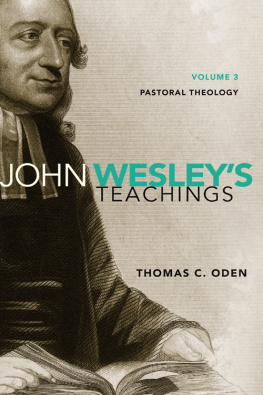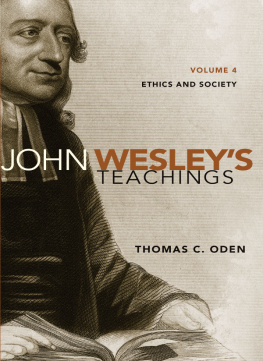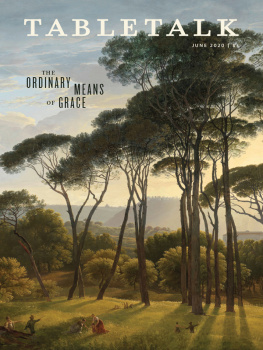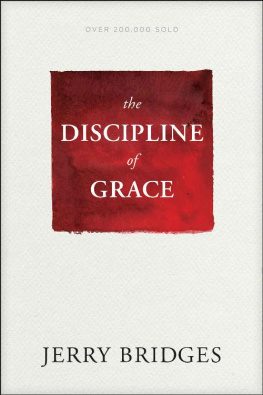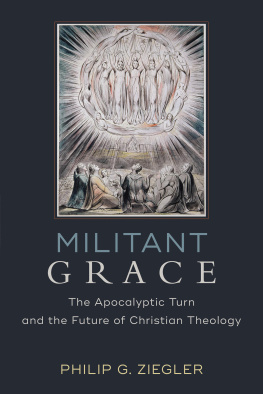PIETIST AND WESLEYAN STUDIES
Editors: David Bundy and J. Steven OMalley
This monograph series will publish volumes in two areas of scholarly research: Pietism and Methodism (broadly understood). The focus will be Pietism, its history and development, and the influence of this socio-religious tradition in modem culture, especially within the Wesleyan religious traditions.
Consideration will be given to scholarly works on classical and neo-Pietism, on English and American Methodism, as well as on the social and ecclesiastical institutions shaped by Pietism (e.g., Evangelicals, United Brethren, and the Pietist traditions among the Lutherans, Reformed, and Anabaptists). Works focusing on leaders within the Pietist and Wesleyan traditions will also be included in the series, as well as occasional translations and/or editions of Pietist texts. It is anticipated that the monographs will emphasize theological developments, but with close attention to the interaction of Pietism with other cultural forces and to the sociocultural identity of the Pietist and Wesleyan movements.
- Gregory S. Clapper, John Wesley on Religious Affections. 1989.
- Peter Erb, Gottfried Arnold. 1989.
- Henry H. Knight III, The Presence of God in the Christian Life: John Wesley and the Means of Grace. 1992.
- Frank D. Macchia, Spirituality and Social Liberation: The Message of the Blumhardts in the Light of Wuerttemberg Pietism. 1993.
- Richard B. Steele, Gracious AffectionandTrue Virtueaccording to Jonathan Edwards and John Wesley. 1994.
- Stephen L. Longenecker, Piety and Tolerance: Pennsylvania German Religion, 17001850. 1994.
- J. Steven OMalley, Early German-American Evangelicalism: Pietist Sources on Discipleship and Sanctification. 1995.
- R. David Rightmire, Salvationist Samurai: Gunpei Yamamuro and the Rise of the Salvation Army in Japan. 1997.
- Simon Ross Valentine, John Bennet and the Origins of Methodism and the Evangelical Revival in England. 1997.
- Tore Meistad, Martin Luther and John Wesley on the Sermon on the Mount. 1999.
- Robert C. Monk, John Wesley: His Puritan Heritage. 1999.
- Richard B. Steele, Heart Religionin the Methodist Tradition and Related Movements. 2001.
- Diane Leclerc, Singleness of Heart. 2001.
- Charles Yrigoyen, Jr., The Global Impact of the Wesleyan Traditions and Their Related Movements. 2002.
- Laurence W. Wood, The Meaning of Pentecost in Early Methodism: Rediscovering John Fletcher as John Wesleys Vindicator and Designated Successor. 2002.
- Floyd T. Cunningham, Holiness Abroad: Nazarene Missions in Asia. 2003.
THE PRESENCE OF GOD
IN THE
CHRISTIAN LIFE:
John Wesley and
the Means of Grace
by
Henry H. Knight III
Pietist and Wesleyan Studies, No. 3

This book is based on the authors Ph.D. dissertation, The Presence of God in the Christian Life: A Contemporary Understanding of John Wesleys Means of Grace, Emory University, 1987.
SCARECROW PRESS, INC.
Published in the United States of America
by Scarecrow Press, Inc.
A wholly owned subsidiary of
The Rowman & Littlefield Publishing Group, Inc.
4501 Forbes Boulevard, Suite 200, Lanham, Maryland 20706
www.scarecrowpress.com
PO Box 317
Oxford
OX2 9RU, UK
British Library Cataloguing-in-Publication data available
Library of Congress Cataloging-in-Publication Data
Knight, Henry H., 1948
The presence of God in the Christian life : John Wesley and the means of grace / by Henry H. Knight III : introduction by Don E. Saliers.
p. cm. (Pietist and Wesleyan studies ; no. 3)
Revision of thesis (Ph.D.)Emory University, Atlanta, 1987.
Includes bibliographical references and index.
ISBN: 978-0-8108-2589-5
ISBN: 0-8108-2589-9
1. Grace (Theology). 2. Grace (Theology)History of doctrines18th century. 3. Wesley, John, 17031791. I. Title. II. Series.
BT761.2.K58 1992
234'.092dc20 92-33900
Copyright 1992 by Henry H. Knight III
Manufactured in the United States of America
Printed on acid-free paper
To Eloise
Editors Foreword
John Wesley has been a mentor for thousands of clergy and scholars. However, scholarly analysis of Wesley as a theologian has lagged, partly because his thought escaped and superseded the traditional easy categories of theological reflection. For that reason, Wesley could be accused in his own time of holding two mutually exclusive heresies of enthusiasm and formalism. In this volume, Henry (Hal) Hawthorn Knight III demonstrates that Wesley refused to be limited by oppositional thinking and worked to synthesize presumed opposites. The means of gracekeeping the commandments, prayer, the eucharist, fasting, fellowship, rules of holy living, visiting the sick, and so forthhave generally been treated as isolated phenomena by scholars of Wesleys thought. This examination of the means of grace studies for the first time the function of each of the individual graces in the larger context of the Christian life, the life of love, demonstrating their interconnectedness.
It is a goal of the Pietist and Wesleyan Studies series to contribute to the project of revision of traditional modes of reading Wesley by exploring the relations between Wesley and Wesleyan spirituality and the theological and ministerial structures of the Wesleyan tradition. The Presence of God in the Christian Life: John Wesley and the Means of Grace will help shape that discussion.
Following undergraduate studies at Emory University (B.A. 1970), Knight served as a First Lieutenant in the U.S. Air Force (19711975). He returned to the Candler School of Theology at Emory University, where he received the M.Div. (1977). The M.Div. thesis compared the hermeneutics of Wolfhart Pannenberg and Hans W. Frei. During and after his seminary education, Knight pastored three United Methodist Churches (19751981). He returned again to Emory University, where he enrolled in the Graduate School. This volume is a significantly revised form of the dissertation presented for the Ph.D. degree (1987). Knight, the author of numerous scholarly articles and reviews, is now adjunct lecturer at Candler School of Theology in Wesleyan theology.
We are pleased to publish his study as the third volume of Pietist and Wesleyan Studies.
David Bundy | J. Steven OMalley |
Associate Professor of Church History | Professor of Church History and Historical |
Librarian | Theology |
Christian Theological Seminary | Asbury Theological Seminary |
Indianapolis, IN | Wilmore, KY |
Preface
My serious study of John Wesley began after I graduated from seminary, while serving as the pastor of a local church. It was there I first realized Wesleyalthough clearly a man of the eighteenth centuryspoke directly to issues which face the church today. The problems addressed in this study are no exception: formalism and enthusiasm, despair and presumption are all very much with us, and continue to foster competing spiritualities. Certain means of grace are still championed at the expense of others. As in Wesleys day, the Christian life suffers accordingly.
What was so attractive about Wesley was his refusal to engage in oppositional thinking. He could make theological distinctions and was not hesitant to take a stand on those issues he deemed important. But where others saw only mutually exclusive options, Wesley found mutual interdependence. Reason and experience, catholic and evangelical, word and sacrament, personal and communal, evangelism and social action, faith and worksall were seen by Wesley as intrinsically related in becoming and living as a Christian. He did not, as some might think, simply assert a unity of opposites; rather, he characteristically questioned the presuppositions upon which their supposed conflict was based and offered an alternative account of their necessary interrelation in the Christian life.
Next page

